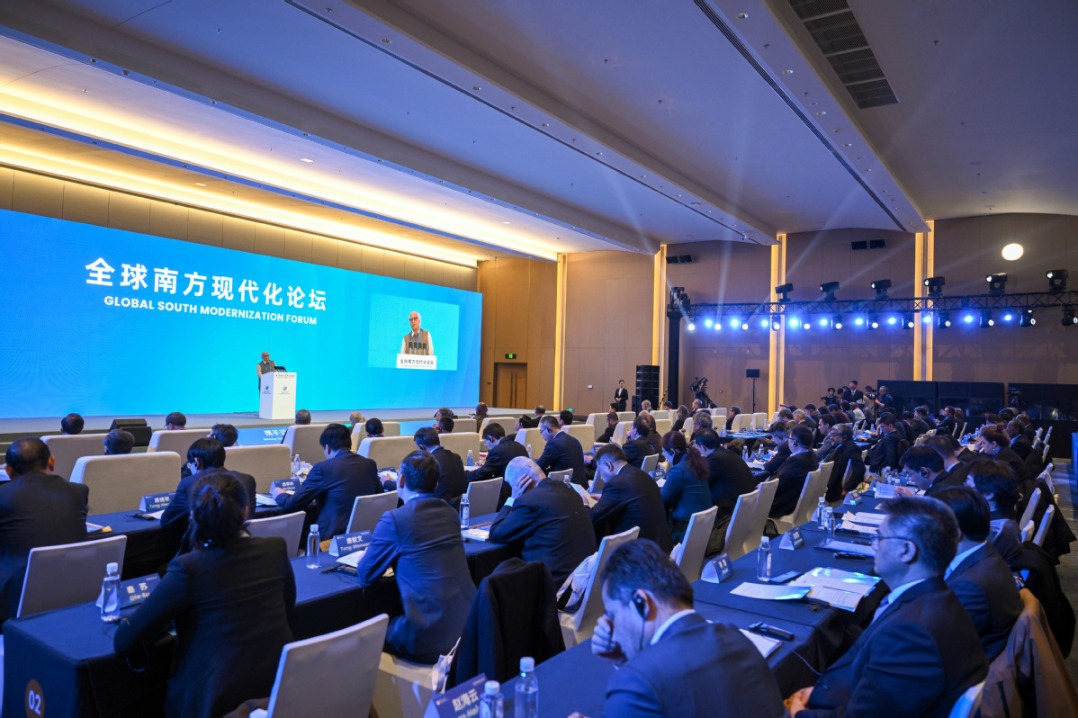English education booms loud and clear

As amazing as the works of William Shakespeare - that's how John Fallon, chief executive of Pearson's International Education Business, sees the development of the English education and training market in China over the past 20 years.
Pearson, owner of the Financial Times and book publisher Penguin, purchased Global Education and Technology Group (GEDU), a previously Nasdaq-listed Chinese company which provides English test preparation services, for $294 million (230 million euros) in November, its largest acquisition so far in China to tap the booming English-learning market.
"With the development of China's economy and further opening-up, there has been a hugely expanding group of people learning English here in recent years. The English education and training market in China enjoys very significant growth opportunities and will maintain the fast development momentum," said Fallon in a statement after the acquisition.
Pearson also acquired Wall Street English, a chain of English-language schools, in 2009 for $145 million. The previous year, it had acquired Longman School, a similar chain for children.
Zhang Jiaxiang, chairman of the professional committee of the Chinese Non-Government Training and Education Association, says the fast-growing market for English training in China is being driven by the increasing number of people who are going overseas, and by young people and professionals at home who need to improve their proficiency in the language.
"China's growing economy and further opening-up to the outside world requires more professional people who have a good command of English. And because public schools have limited capacity for this education, and the English training schools are more flexible than the government-run schools in adapting courses to students' needs, such as offering online courses, the private English education and training market has received a huge boost," Zhang says.
According to figures from the Ministry of Education, there were 339,700 Chinese students studying abroad last year, a 19 percent increase from 2010.
Xiong Bingqi, vice-president of 21st Century Education Research Institute, says China's English-language training industry has also hugely benefited from the development of the private education sector in general.
"Although the private education industry has not received as much support from the central government as some other industries, such as green energy, the government has been making efforts to boost this industry in recent years," Xiong says.
"For instance, the law on the Promotion of Private Education was enacted in 2002, which provides some favorable policies, and since then, the nation's private education industry has enjoyed great development."
Yu Minhong, founder and president of New Oriental Education and Technology Group, says the number of domestic private English education and training schools currently stands at 60,000.
"Without the government's encouragement, many big private education and training institutions such as us could not have developed into what they are today," Yu says.
But the fast expansion of the industry also raises many challenges, experts say.
Yu Wanting, an analyst at China International Capital Corp, says that a lack of consistent standards and regulations constitutes a big obstacle for the sound development of the market. She says different cities in China have different regulations for the private education sector. Even regulations among districts in a city, such as in Beijing, are not consistent with each other. For instance, many English education and training schools employ teachers on contracts from public schools, but in many Chinese cities, public school teachers are restricted from working as private tutors.
"If the government can implement a more effective system of standards, the education and training market will be strengthened and will attract more capital investment, and then this market will be boosted further," she says.
Additionally, due to increasing demand and the lack of standards and regulations, there are many companies trying to squeeze into this market, and there is greater pressure to stand out from the crowd.
But Huang Jin, president of Ambow Education Holdings, says the key to meeting such challenges is to improve core competitiveness by providing good-quality service and products. "To survive the fierce competition, innovation and high-quality services are essential. And although it is expensive, brand building is also necessary. In the long run, the pain of doing so will pay off," Huang says.
huhaiyan@chinadaily.com.cn
Today's Top News
- 15th National Games embodiment of high-quality development
- Lawmakers' thousands of proposals receive responses
- China warns Japan against interference
- Nation's euro bond sale shows investors' confidence
- No soft landing for Tokyo's hard line
- Commerce minister urges US to increase areas of cooperation






























